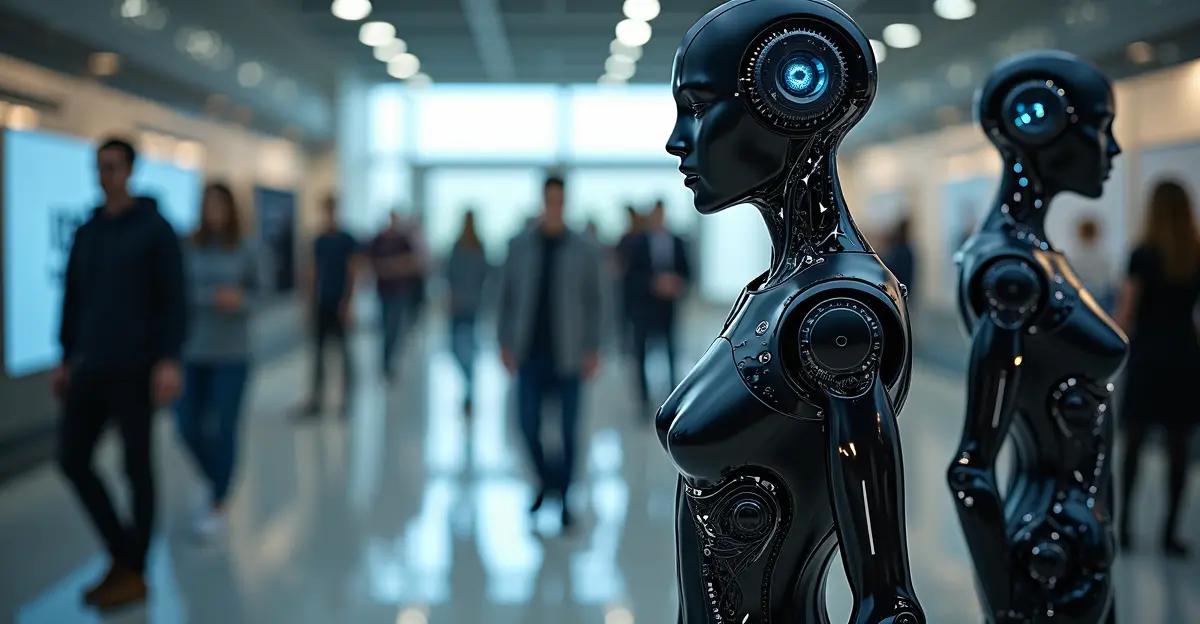Fashion brands are increasingly using generative AI to design innovative clothing collections, combining human creativity with machine intelligence while reducing waste and accelerating design processes.

The AI Fashion Revolution
The fashion industry is undergoing a seismic transformation as generative artificial intelligence becomes the newest designer in town. Major fashion houses and emerging brands alike are embracing AI-powered tools to create innovative clothing collections that blend human creativity with machine intelligence.
How AI is Changing Fashion Design
Generative AI systems analyze vast datasets of historical fashion trends, cultural patterns, and consumer preferences to create entirely new designs. These systems can generate thousands of design variations in minutes, something that would take human designers weeks or even months to accomplish.
"We're seeing AI not as a replacement for human designers, but as a powerful collaborator that can push creative boundaries," says fashion technology expert Dr. Elena Martinez. "The technology allows designers to explore concepts they might never have considered otherwise."
Leading Brands Embracing AI
Several major fashion houses have publicly embraced AI design technology. Luxury brands are using AI to create limited-edition collections that combine traditional craftsmanship with futuristic design elements. Fast fashion retailers are leveraging the technology to quickly respond to emerging trends and consumer demands.
One notable example includes a recent collaboration between a major luxury brand and an AI startup that resulted in a collection featuring patterns and textures that would be nearly impossible to create through traditional design methods.
Sustainability Benefits
Beyond creative innovation, AI fashion design offers significant sustainability advantages. By creating digital prototypes and conducting virtual fitting sessions, brands can reduce material waste significantly. The technology allows for precise pattern creation and material optimization, minimizing fabric waste during production.
"The environmental impact reduction is substantial," notes sustainability consultant Michael Chen. "We're seeing up to 30% reduction in material waste for brands that fully integrate AI into their design process."
Challenges and Ethical Considerations
Despite the exciting possibilities, the integration of AI in fashion design raises important questions about intellectual property, creative ownership, and the future role of human designers. Industry leaders are working to establish guidelines for ethical AI use in fashion creation.
The technology also faces technical challenges, particularly in understanding the tactile properties of fabrics and ensuring that AI-generated designs can be practically manufactured.
The Future of AI Fashion
As AI technology continues to advance, experts predict even more sophisticated applications. We may soon see AI systems that can predict fashion trends years in advance, create personalized clothing based on individual body measurements and style preferences, and even design adaptive clothing that changes based on environmental conditions.
The fashion industry's embrace of generative AI represents a fundamental shift in how clothing is conceived, designed, and produced. While human creativity remains essential, AI is proving to be an invaluable tool for innovation and sustainability in an industry constantly seeking the next big thing.

 Nederlands
Nederlands English
English Français
Français Deutsch
Deutsch Español
Español Português
Português

